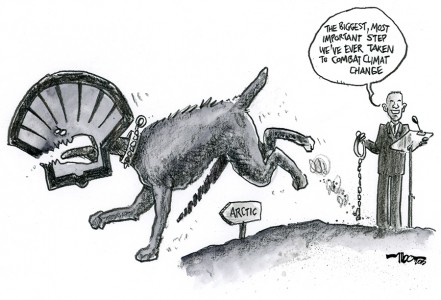Dat zijn de woorden die John Ashton, voormalig speciaal afgevaardigde voor klimaatverandering van de Britse regering, gebruikt in een open brief aan Ben van Beurden. De brief is een reactie op de speech van Van Beurden een maand geleden waarin hij de olie- en gasindustrie opriep om ‘minder afzijdig’ te blijven en actie te ondernemen m.b.t. klimaatverandering. De hele brief is de moeite waard om te lezen, een paar hoogtepuntjes:
You have an undeniable interest in the choices society makes about climate change. But you have been sophisticated in pursuit of that interest, as you perceive it. From the start, nobody has been less aloof, more assertive, nor more influential than the oil and gas industry.
(…)
The summary that accompanies the published text of your speech also catches the eye.
It anticipates an “energy transition”. But it foresees no change “in the longer term” in the drivers of supply and demand for oil. (…) In other words, the energy transition to come will be an unusual kind of transition. It will have no structural consequences for the energy system itself, or at least for the markets on which your business model depends. (…) Engagement, with delusions of aloofness. Commitment, to a transition that ends where it began. Such cognitive dissonance suggests, even before we get to the text, that your speech may say more about the state of mind of your industry than the external conditions that prompted you to speak.
(…)
It is in truth not your fault that climate change is a hard problem. Though your industry must bear some responsibility for our failure so far to face it, that is not exclusively your fault either.
But the choices of your generation of CEOs will be decisive, not only for you as corporations but for the eventual success or failure of our response to climate change.
That is why you will be held relentlessly to account for those choices; why what you said last month invites forensic scrutiny.
Every speech tells a story. And beneath the story on the surface there is always another, told more subtly, about the compulsions, desires and anxieties that animate the first.

